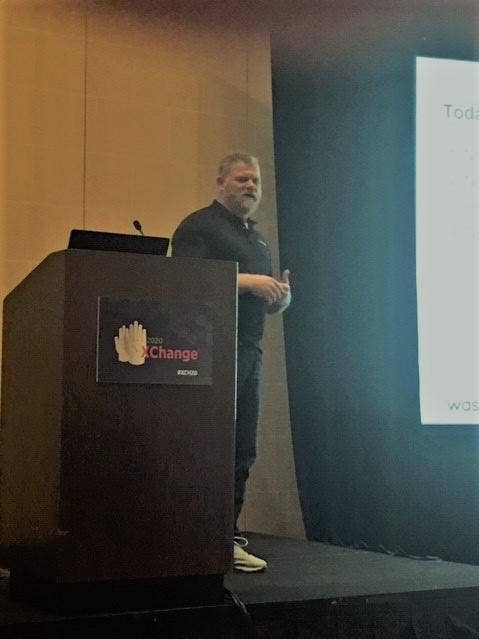Wasabi Warns Against Hidden Cloud Storage Fees, Cloud Lock-in
Hidden costs ranging from egress fees to fees just to see what is stored on the cloud can hide the true cost of cloud storage, according to Wasabi which just happens to have an alternate that provides for a fixed cost with no hidden fees.

Even as cloud storage has gradually become a more common alternative to hardware-based, on-premise storage, business users are still finding surprises in their storage bills from a wide range of hidden costs.
That's the word from David Boland, director of product marketing at Boston-based cloud storage provider Wasabi, who told an audience of MSPs at this week's XChange 2020 conference that his company offers an alternative with clear, up-front pricing and no tiers to worry about.
"MSPs don't have the ability to predict what the cost of cloud storage will be. ... Wasabi doesn't have any hidden costs," Boland said.
[Related: The 20 Coolest Cloud Storage Companies Of The 2020 Cloud 100]
When it comes to cloud storage from the biggest providers such as Amazon Web Services or Microsoft Azure, the only part of the monthly bill that can be easily determined is the per-terabyte cost to store data in the cloud, Boland said.
However, there are numerous hidden costs that, taken together, can add significantly to the cost of storing that data, he said.
Accessing that data can trigger one or more costs, Boland said. For instance, there may be a retrieval fee just for asking for the data and an inventory charge to get a list of stored objects, after which there is an egress fee of $2 to $9 per terabyte to copy data from the cloud to on-premises, he said.
There are transfer charges for moving data from one cloud data center to another, and a transfer acceleration fee to get faster access to the data, he said. There are fees for API puts and gets to create and access objects in an application, he said.
There is even what Boland termed a small object tax when a cloud provider charges a minimum amount for an object based on, for instance, 128 KBs, even though an object may only be 40 KBs in size.
Because of these costs, businesses can be subject to cloud vendor lock-in because of the cost to take their data out of the cloud, Boland said.
"If you can't afford to get the data out, it's locked in," he said.
Wasabi, he said, charges a flat $5.99 per terabyte per month for object storage, with no other fees.
"But most MSPs roll the service into their other services, and so can bill for it at their own price," he said.
Another problem with many cloud storage offerings is that they were designed based with traditional tiers, with performance and price varying at different tiers, Boland said.
Wasabi, on the other hand, has no tiers, he said. "There's no hot, no super-cold, no wicked-cold," he said. "Just one tier. ... We felt there should be one tier priced as low as possible."
Wasabi offers a channel-friendly alternate to the larger cloud providers not only because of its lower cost but also because partners can easily roll its service into their other services, Boland said.
Wasabi currently provides cloud storage in concert with over 200 tech partners providing things like data protection technologies, including Veeam, Rubrik, Actifio, Commvault, MSP360, Altaro, Komprise, and Comet Backup, he said.
"We work with people who do the things they do better. ... You don't have to worry if Wasabi is coming out with the latest in backup software," he said. "You just continue working with the people you have worked with."
The latest offering from Wasabi is its Reserved Capacity Storage pricing model that lets customers purchase a reserved amount of cloud storage for a fixed price for one, three, or five years, Boland said.
This new pricing model lets customers more easily compare cloud storage costs to those of on-premises storage hardware, and lets channel partners sell cloud storage capacity as a SKU in the same way that they would sell a new on-premises storage appliance, he said.
Wasabi has shown clearly that it is very price-competitive to other cloud storage providers, including both AWS and Microsoft Azure, said Reagan Roney, executive vice president of Solvere One, a Dulles, Virg.-based MSP who works with the three vendors.
"To be able to word with a vendor with the flexibility of Wasabi is nice," Roney told CRN. "You can tell it's very focused on MSPs like us."
Reserved Capacity Storage looks like a good option for some clients, depending on how their accounting systems are set up, Roney said.
"A lot of people like the flexibility of treating storage like a monthly operating expense," he said. "But others will like having a fixed capacity over time. It's like all solutions: There's no right answer for everybody."